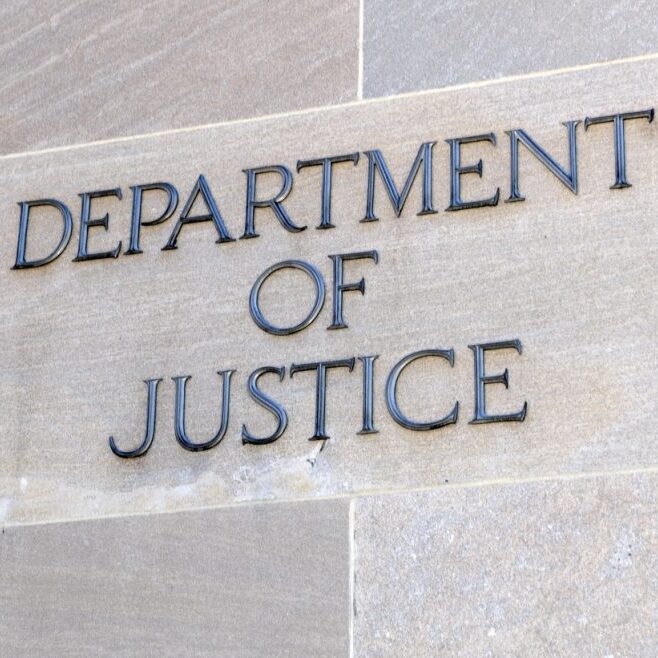Insights < BACK TO ALL INSIGHTS
No Need for Speed
No Need for Speed
By: James Trusty
In most U.S. District Courts, the trial date for a defendant who is not incarcerated is typically many months—and often easily over a year—from the time of his or her initial appearance after indictment. Many trials are resolved by plea agreements without ever having set a “real” trial date. There is lip service to the constitutional notion of a Speedy Trial, and the easily avoidable clock ticking under a statutory Speedy Trial framework, but of the single-digit small percentage of cases that actually proceed to trial, most wait 12-18 months (or more, depending on complexity) for their onset. The scheduling of Former President Trump’s criminal case in Washington, D.C., however, is shaping up to be quite different than almost any other prosecution in history.
The guarantee of a Speedy Trial has its origins in the notion that the government should not lock up individuals who are presumed innocent and have them detained for months or years before given an opportunity to exonerate themselves. It can be a Pyrrhic victory indeed for a defendant to serve a couple of years in jail, to win at trial, and to learn that the maximum penalty for the crime was less than what he already “served” in a pretrial setting. And while there is a largely academic “public” right to a speedy trial, the heart of the protection lies with the defendant.
Enter the machinations within U.S. v. Donald J. Trump, Criminal Action Number 23-257 (TSC). At the August scheduling conference for this insurrection-without-charging-insurrection case, Jack Smith pushed for jury selection in December and a trial in January. Trump’s team asked for a highly improbable mid-2026 start date. Judge Chutkan settled on March 4, 2024, the day before the Super Tuesday primary, and a date markedly closer to Smith’s high-speed suggestion. Defense counsel noted that there were millions of pages of discovery materials to sift through and that they could not be ready that quickly, but the judge displayed no sympathy for that position—at least that early into the case–and she announced an unwillingness to let a defendant’s professional obligations (or political aspirations, in this case) serve as a basis for delay. By contrast, in South Florida, Judge Aileen Cannon has taken a more typical, incremental approach to the Mar-a-Lago documents case scheduling. She is concerned that the process of sifting through classified materials for use at trial (“CIPA” procedures) is going slowly so while she set a trial date for next year, she has also suggested that the date is not in stone. The parties will come back to court in March to give her a progress report, and presumably at that point a final trial date will be set. Judge Cannon has also suggested that it is entirely appropriate for her to consider the calendars of all the parties when it comes to setting a trial date—and from my 23 years in federal courts, that desire to set a collectively acceptable trial date is the norm, not the exception.
Meanwhile, back in D.C., the defense raised the issue of presidential immunity, which was shot down by the trial judge in her December 1st order. Six days later, the defense appealed the ruling to the Court of Appeals for the D.C. Circuit. Typically, the Court of Appeals ruling would not likely come before early March’s trial date. Consequently, the prosecutors did something quite unusual, as they calculated the calendar of the appeal—they asked the Supreme Court to jump in and make a ruling without waiting for the intermediate court’s decision. The express reason for the petition, which was granted this week, was to do everything possible to keep the March 4 trial date.
In explaining the need for expedited SCOTUS involvement, DOJ wrote, “Nothing could be more vital to our democracy than that a President who abuses the electoral system to remain in office is held accountable for criminal conduct.” Flowery and pejorative language aside, the quote does not explain the obsessive need to try the case on Super Tuesday eve. More directly, the government later explains its basis as, “The public interest in a broad sense, as well as the constitutional guarantee of a speedy trial.” I, for one, am not overly comfortable with DOJ prosecutors authoritatively declaring the public’s interest. But more fundamentally, we have to ask why in this case, and really this case only, has Merick Garland’s Special Counsel continuously pushed for such an early trial date? Is the prosecution’s keen interest in a speedy trial one of principle or one of politics?
The underlying issue itself – whether prosecution of a former President for allegations during his presidency is constitutionally permissible (or whether there is a way to carve up immunity between “core responsibilities” and conduct essentially unrelated to holding office) is an interesting and important one. SCOTUS is poised to make a historic, and apparently expedited, decision. But lost in the procedural shuffle is a DOJ level of aggression—and an apparently similar sentiment from the trial judge – that is propelling a complicated, unique, and historic prosecution along an unnecessarily fast track. Whatever the verdict and any outcome on appeal, a rush to convict and imprison a presidential candidate before the election will cause more systemic damage to our criminal justice system than would displays of fairness and patience.





